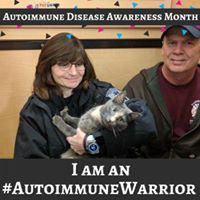-
Posts
1,079 -
Joined
-
Last visited
-
Days Won
8
fiznat last won the day on July 29 2015
fiznat had the most liked content!
Contact Methods
-
AIM
foosternit
-
Website URL
http://babymedic.blogspot.com/
-
ICQ
0
Profile Information
-
Location
In the back
-
Interests
Medicine and Motors
fiznat's Achievements
Newbie (1/14)
61
Reputation
-
The epidemiology of VTE is super difficult. The risk of DVT/PE in hospital patients and those recently discharged from the hospital is something like 100-120 times the risk in the general community, and several studies have shown that PE is found in about 10% of all hospital deaths (though it is usually only suspected in about 3%). The are accusations of both under and over-reporting in the literature, so really the picture is pretty cloudy. What's extra weird though is that prophylaxis against VTE is effective in reducing incidence (by about 50%) but not at all effective in improving mortality. So, this is a disease that is supposed to kill a lot of people, but when we limit the prevalence of the disease we can't seem to change the number of people who die. Really odd. In regard to the patient in question, it would be interesting to know what kind of work he had done at the hospital (stents? CABG? medical therapy only?) and what his ejection fraction looked like at discharge. His discharge medications are interesting as they don't seem to correspond completely with any of the above (no double anti platelet for stents, no ACE-I for ischemic CM, etc)... it isn't really clear what happened to this guy before he left the hospital from the story and the meds alone. Still, while PE is certainly more common in this population of patients, it is far from the most common cause of death (which would be arrhythmia).
-

Level of Certification/Workplace Environment
fiznat replied to Bieber's topic in General EMS Discussion
Paramedic, medical student (just finished 1st year! wooo!). When I do work, it's private service 911 transport. -
Hey Dwayne, I don't know too much about those devices specifically, I will have to look it up because you've got me interested in it now too haha. I imagine many of the compensatory mechanisms would still be available, especially the important ones that alter fluid levels or change vascular tension to tune preload to the heart. The same fluid dynamics that make the the heart work better under high preload could possibly apply to any mechanical pump, as well. No doubt the pump would be "dumber" about it though. Our bodies truly are full of amazing dynamic systems that all work in concert together-- that much is certainly becoming clear through all of this school. I didn't have any legal concerns with the blog, I just took it down temporarily when I was applying to and starting school because a lot of the stuff I wrote in there isn't exactly all that personally flattering haha. I wanted to put forward my best face, and let them learn later that I too make mistakes heh. I haven't written there for more than two years now. I'd love to pick it back up and write about everything I'm going through right now, but I honestly don't know if I have the time or the energy for it these days. I've got a (rare) free weekend right now- you've got me thinking about it dude. I still stop by the City now and then, but I'd stop by more if it were busier! We gotta drum up some activity here!
-
Hi Dwayne! Just learned this a few months ago in school. The body actually works really heard to diminish that pulsing effect. Having peaks and toughs (a diastolic and systolic) in vascular pressure is actually bad for exchange of nutrients at the capillary level. It would actually be completely ideal if the blood flow were slow and constant (like a gently passing stream) rather than the pulsating flow that comes out of the heart. Turns out, this is why arteries are so elastic: because the way they stretch helps to buffer the high and low pressures to even things out. This works so well, that normal healthy people by the time you get to the capillary level (where exchange actually happens), blood flow is smooth and the pulsating is effectively gone. We've done a whole lot of systems by this point, and I haven't yet run across any sort of autoregulatory or otherwise physiologic mechanism (outside of the heart itself) that relies on a pulsating flow of blood. Doesn't mean there isn't one haha, but just my brief experience in medical school so far tells me that a "pulse" might not be all that important or necessary.
-

Have you recert'd your NR-P via retaking the test?
fiznat replied to DwayneEMTP's topic in General EMS Discussion
Hey Dwayne, I always did my recerts by challenging the tests. I found it a lot less painful than those 40ish hour medic refresher classes. You've got the basics-- have your medcon/director sign off on skills and CMEs, then you get authorized to take the written exam. Its like $100 and you're done. WAY better than the alternative... -
Yeah, I pulled a few shifts with this guy way back when we both used to work at a different company. Seemed like a regular guy then, and all local reports from people who know him now seem to indicate that he was a decent medic who was well liked. I guess you never know. What a terrible thing to happen, and I agree: a horrible black eye for EMS. I know some of my coworkers (who work at a different AMR division in the same state) have been getting occasional flak from patients and other people about it. Really awful.
-
It isn't that much of a zebra, WPW definitely happens and usually when you aren't looking for it. You only have to miss this once before you start thinking about it on every patient with wide and tachy rhythms. I've missed it before, and I promised myself I wouldn't again. As far as the OP: you really can't tell the difference between VT and SVT with abbarency on a 3 lead. Even with a 12 lead it can be very difficult. I would take extreme caution in diagnosing, and especially treating VT as this is an area where you can definitely do some significant harm with the wrong choice. It's been my personal observation that people tend to be a little quick to think they are dealing with VT when it is oftentimes not the case. You should have a high index of suspicion in regards to VT, and really only consider treating those patients who need it immediately.
-
Pros- The attitude here in regards to EMS mostly mirrors my own: anti fire-based, anti volunteer (for the most part-- miss you Dusty!), pro education, pro discussion. I think there is something to do with the nature of the place that attracts people interested in discussing what might have gone wrong. That differs quite a bit from the average attitude on the job. I enjoy getting in (professional) arguments about this stuff, and a lot of times these forums have been happy to oblige haha. Cons- The forums are a little slow. Would definitely like to see more activity. Sometimes I think people get a little caught up in singing the same songs-- "we need more education," "we need to get more respect as a profession" etc without ever really considering what that means or how to start moving in that direction. A complaint is good, a goal is better, and a plan beats them all. Oftentimes we get stuck on the lowest rung in that respect... Would like to see more ALS discussion that pushes the boundaries of stuff we already know. I'm sick of talking about whether or not we should be intubating haha.
-

Where can I find a PHTLS class that is LOCAL?
fiznat replied to medic4Him's topic in General EMS Discussion
Does your sponsor hospital/medical control require to upkeep your PHTLS card? Ours doesn't-- I let mine lapse a while back.... -
Cool site, but why not just use Wikipedia? The articles are more complete, and are subject to a more rigorous review process....
-

Helping a new paramedic get his foot in the door.
fiznat replied to Walter Perrell's topic in General EMS Discussion
Well to be perfectly honest working as a volunteer EMT is not adequate experience, especially for a paramedic. Working as a CNA doesn't cut it either. It is very possible that these agencies aren't willing to take the risk on you because training a new paramedic is a sometimes lengthy and expensive process. There could be some other red flag as well, who knows. I would suggest calling a few places that rejected you and ask how you can improve your application. Find out what the issue was and work on fixing that. You can't do too much about your lack of experience at this point, best bet is to just apply broadly and make every other aspect of your application shine. Best of luck! -
Well, you posted it! haha, actually you are mostly right. When glucose levels are low (or when there is a problem with trapping the glucose in the liver, as is the case here), fatty acids are brought to the liver and transformed into acetyl CoA, which is then fed into the citric acid cycle (TCA/Krebs cycle) for energy. The acetoacitate and beta hydroxybutyrate are the ketone (in KETOacidosis) products of the reaction. The body can use ketones for energy when things get really desperate (starvation state), but what happens in DKA is the ketones start to really build up. Like you mentioned, they have a low pH and start messing with body systems. Then you have that whole dehydration mechanism. Happened to be doing this stuff in school right now so I had to chime in... sorry OP! Didn't forget about you! Writing essays is a great way to help learn and retain information. Maybe you should consider starting a blog or something like that and make weekly (or whatever) entries on what you've learned. I would go with a format something like this: 1. History and pathophysiology of the disease. (What is asthma and what is happening in the body) 2. Current treatment mechanisms (what is available to treat asthma and how do those treatments work) 3. Practical approach for paramedics (given all this information, what are the best practices) 4. Where can we go in the future (are changes necessary? is there research out there? etc)
-

Preparing to go to paramedic school - what to read?
fiznat replied to darrenb11's topic in General EMS Discussion
I googled BHSc degree and came up with bachelors programs. Are you saying that what this person should do to prepare for a 12 month paramedic certificate course is complete the material that is sometimes used in a 3 year undergraduate degree? ...And then add chemistry, biochemistry, microbiology, physiology, and other graduate level material? Sometimes I feel like people post stuff like this just to show off what books they (may or may not) have once read. We're not measuring e-peens here. -
Absolutely, sedation is in order if the patient is gagging on the tube. That said, I don't think a little gag is necessarily a contraindication for intubation. Gag reflex is not the same thing as consciousness, and it does not mean that the patient is entirely protecting their airway. It is a judgement call of course, which is why you get paid the big bucks to wear that patch haha. What you need to do is balance how well you think this person is protecting their airway against the possibility that you could cause harm with the procedure. High risk for harm or low clinical benefit = don't tube. You should use that same reasoning for all of your interventions, really. Keep doing this. Reviewing your calls and your clinical decisions is one of the most effective things you can do to improve yourself in this field. It won't eliminate mistakes, but it will definitely increase their value.





